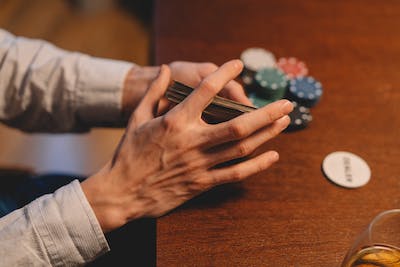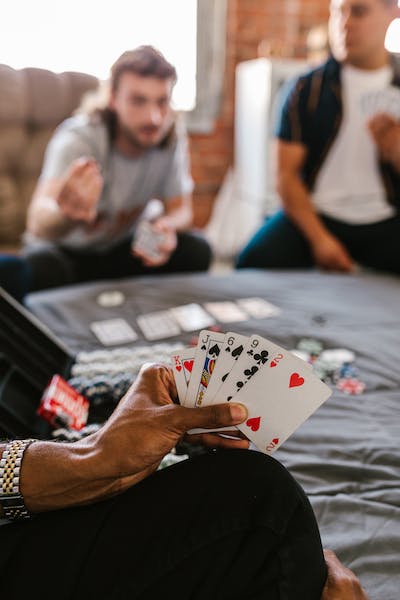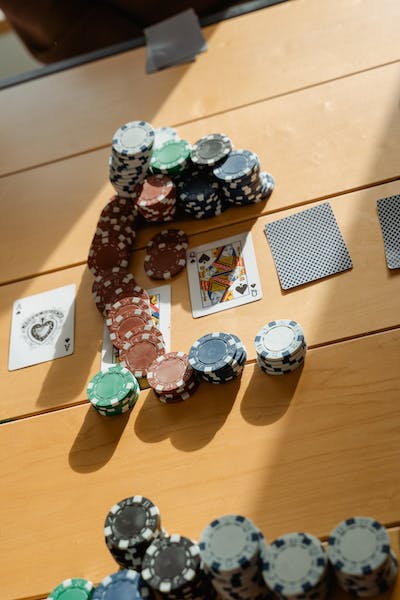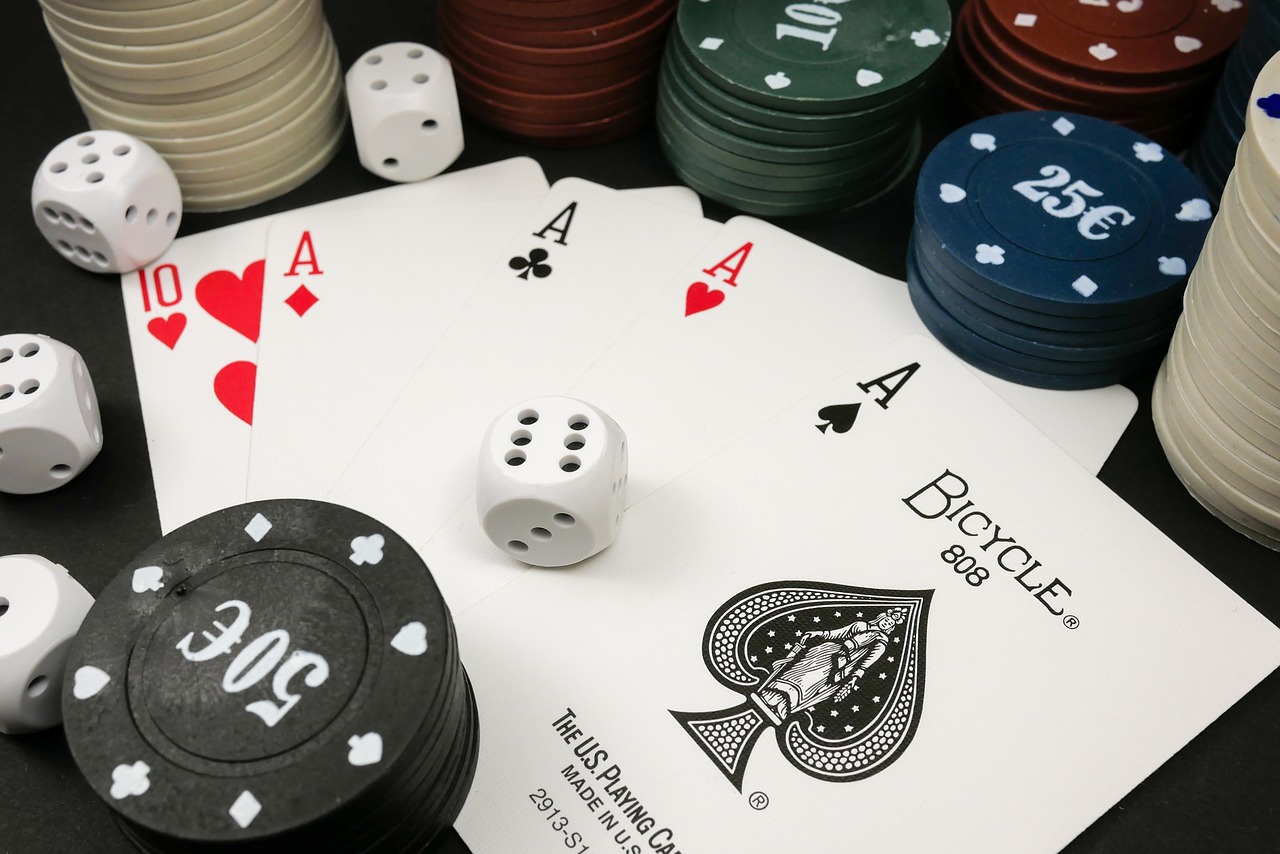The post Are You Anxious About Playing Poker? Find Out if You Have Poker FOMO! appeared first on Championnat-De-Poker.
]]>Although the phrase “fear of missing out” might seem harmless and helpful, it causes anxiety and can originate from concerns like not being chosen for a team or feeling nervous about a poker opponent’s successes. It could also apply to the stress of securing a spot on a popular online poker website.
As a result, FOMO can lead to various psychological distresses, including tilt. Therefore, it is essential to explore the origins of the fear of missing out and determine when it becomes concerning for its impact.

Where Does FOMO Come From?
FOMO, which stands for Fear of Missing Out, originated in a 2004 op-ed piece published by The Harbus – the magazine of Harvard Business School. Since then, it has become popular and was even added to the Oxford Dictionary in 2013.
The enduring popularity of FOMO suggests that it will continue to be relevant in the future. Initially, FOMO was associated with the anxiety caused by constantly checking social media updates. People experiencing Fear of Missing Out (FOMO) must keep themselves informed and ensure they don’t miss out on essential updates regarding different topics.
This can be dangerous, as those with minority opinions may face severe consequences on social media platforms like Twitter or Facebook, which can further lead to real-life situations such as job loss, qualifications revocation, and even physical assault.
Over the years, FOMO has expanded its scope to cover various areas of human behavior, such as obsessive behavior on social media, financial trading, and even poker tilt from the anxiety and frustration of not being able to keep up with the latest trends and games.
The common thread linking these activities is their development and growth through internet technology. With internet access being more widespread on different devices, it’s no wonder many people have been impacted by FOMO-related discomforts regarding poker and poker hands.
When Do We Experience FOMO?
Do you ever feel like you’re missing out when relaxing at home in your pajamas or enjoying a good book or movie after a long day? That feeling might arise when you receive a text from one of your friends.
When your finger pushes the dreaded button, a wild house party appears on-screen with loud music and friends laughing uproariously. Suddenly, you realize that not going out tonight was an epic mistake; why did you think it would be enough to stay home? Fear of making the wrong decision can be daunting. The terrible decision settles in like a heavy blanket, leaving your best-case scenario far behind.

Discovering How FOMO Impacts Poker Games
It’s important to understand that FOMO is not a new phenomenon. It’s an instinct that humans have always had. Our survival as a species depends on our social connections, so being included in the group could pose a risk throughout history.
Experiencing these feelings can have physical effects, such as butterflies in the stomach and a racing heartbeat. FOMO, or the fear of missing out, can lead you to play hands that you should fold before seeing the flop.
This fear does not come from an external threat but can still affect your brain and decision-making process. Although some professional players may be able to profit in the long run with sure hands in early position, such as suited one- or two-gappers, most players cannot.
If you need help making decisions when you’re not in a favorable position, you may be widening your range of starting hands too much because of FOMO. Ask yourself if you’re losing money by hoping for lucky cards or overreacting to a random player winning big with a terrible starting hand.
Playing casino games can lead to FOMO, which doesn’t necessarily mean you have a gambling problem. However, it’s essential to be cautious and avoid a potential poker tilt. We tend to stay at table games longer than necessary to exploit profitable opportunities.

But it’s important to exercise caution and not let this behavior become unreasonable, as it may lead to problems later. When playing poker online and live, we must remind ourselves that our minds don’t automatically adjust to the game’s requirements.
Our minds need help grasping the game’s intricacies because our usual pattern recognition abilities, which help us recognize an opponent tell or classify a gambler as passive or daring, are not applicable here. Our brains are programmed to realize that even with a bad hand, we may still get lucky and win something on the flop.
The fear of missing out (FOMO) can be triggered when you feel like investing will make you miss out on something. This may lead you to bet more than you should on a bad hand. Unfortunately, some people don’t take responsibility for their FOMO decisions. Surprisingly, some feel relieved after taking the risk, regardless of whether it succeeds or fails.
Conclusion
Poker FOMO is an increasing issue in the poker community and can severely impact bankrolls and players’ mental health. Although feeling FOMO can be uncomfortable, it’s important to remember that missing out on big pots or tournaments won’t ruin your career as a poker player.
Learning how to play smarter, implementing sound bankroll management strategies, and having the discipline to stick to them will make all the difference. With this knowledge, you will be able to take advantage of opportunities presented while avoiding costly mistakes from inappropriate actions influenced by rush decisions made in the heat of the moment due to FOMO.
For those who strive for success in poker and improve their poker strategy, understanding your inner state and eliminating FOMO should be part of your path forward.
You can become a skilled and successful professional poker player by understanding what triggers poker-related FOMO and taking steps to counter its effects. So next time you feel the FOMO, remember: to step back, take a deep breath, and think about what you’re doing before you put your money at risk.
The post Are You Anxious About Playing Poker? Find Out if You Have Poker FOMO! appeared first on Championnat-De-Poker.
]]>The post When Lady Luck Strikes: Which Tournament Superstitions Do Poker Players Still Believe In? appeared first on Championnat-De-Poker.
]]>You must have many chips on your table when you want to play aggressively.
Players commonly believe that many chips are necessary to pressure opponents and that the enormous stack at the table is the “table captain.” However, this is not true. Every player gets dealt two cards, and each should play their hand to the best of their ability.
Poker differs because each hand presents a new challenge and has no predetermined game plan. You get two cards and have to make the most of them before moving on to the next hand.
Several things need to be considered while playing a hand, with stack size being one of the most crucial factors. Occasionally, playing aggressively is essential when you have a smaller stack and more conservatively with a giant pile.

You Can’t Defend the Big Blind with Under 10 Blinds
Experienced players often criticize those who defend their short stacks from the big blind. However, if you float their open with a hand like T-9o and end up hitting a pair on the flop, going all-in, and doubling up, they may reluctantly give you the chips and sarcastically say, “Well played.” Many players believe you should avoid folding an open bet, especially when your hand has fewer than a certain number of big blinds.
Using poker hands training material from 1998 is not advisable because it contains outdated information that many people still rely on. Today, most players use a smaller open-raise size compared to 1998.
If you’re in the big blind and face a min-raise open, it is enough to have about 20% raw equity to continue. It is important to note that most hands have at least 30% equity against various opening ranges. Therefore, even though you may fold many flops, your playable hands’ equity is acceptable to justify defending them.
When you have a short stack, it’s easier to use equity when you need to be in a better position. This is because you have little wiggle room for your moves. For example, you have 6 big blinds, and the cutoff player min raises. You hold T 8
8 and defend your hand. In this situation, it’s doubtful that you’ll make a post-flop mistake because you’ll go all-in if you hit something.
and defend your hand. In this situation, it’s doubtful that you’ll make a post-flop mistake because you’ll go all-in if you hit something.
To clarify, if you do not have any solid cards or potential combinations after the first three community cards are revealed (known as the flop), it is best to check initially and then fold if your opponent bets. This will help you save some of your remaining chips.
However, if you have a larger stack of 30 big blinds or more, your opponent may be more likely to bet on subsequent rounds of the game, making it harder for you to stay in the game and make a winning hand. On the other hand, if you have fewer chips left in your stack, it can be easier to strategize and make the most of the cards you have after the flop.

When You Play, You Play to Win With Every Hand You Play
Some players use the phrase “Bingo!” after losing all their chips early in a poker tournament due to reckless play. They claim they had to play aggressively to win, but this strategy often results in early elimination. It’s important to remember that winning a tournament on the first day is impossible.
Your goal should be to play solid and strategic poker online or live and adjust according to your opponents. Playing hyper-aggressively doesn’t necessarily mean you have to play for the win. Playing to win is often unrealistic, but sometimes it’s also the right strategy to move forward.
When there is a chance of winning, it’s better to focus on winning rather than just playing. In some cases, like during the final two tables of the WSOP Main Event, it might be reasonable to take significant risks.
Sometimes, you may have to confront the chip leader to avoid being blinded. However, these high-stakes situations demand cautiousness, as there’s a thin line between taking calculated risks and making kamikaze moves.
It’s important to note that aiming for 2nd or 3rd place in tournaments with significant prize money is okay. Tournament players must accept and take advantage of pay-jumping opportunities like they cherish rare victories. Winning everything is impossible, and your success, in the long run, depends on how you handle the big picture.
“Every Poker Tournament should be played the same” is inaccurate because different tournament structures, such as satellite games, freezeouts, knockouts, and deep stacks, require different strategies.
It is essential to consider the conditions specific to each game, such as the number of entrants, buy-in fee, prize pool, payout places, and the opponents you are playing against. For example, depending on the payout places, your strategy may need to be adjusted during the bubble.

Conclusion
Poker tournaments can be a fun, safe, and entertaining way to play the game if you enter it with realistic expectations. Remember that the unpredictability of poker game tournaments makes them exciting, and the thrill of winning first place is worth the risks involved.
Preparing for a tournament is essential to knowing your bankroll, having a good strategy, and familiarizing yourself with the tournament rules. Do research before signing up for any tournament, and go in well-prepared. That way, you’ll be sure to enjoy playing your best game!
The post When Lady Luck Strikes: Which Tournament Superstitions Do Poker Players Still Believe In? appeared first on Championnat-De-Poker.
]]>The post Seated on the Button: Taking Advantage of the Best Position in Poker appeared first on Championnat-De-Poker.
]]>
You Must Pay Attention to the Action
When you sit on the button, paying attention to all the action that happens before you is important. It includes how many players are in the pot at any given time, how strong their hands may be, and what bets they make. This information can help you make more profitable decisions when it comes time for you to act.
You Have the Opportunity to Steal Pots
Sitting on the button in poker gives the player a significant advantage, as they can use their knowledge of the hand’s progress to benefit. Those on the button have the great opportunity to “steal” pots by exploiting positional advantages.
With this extra information, they can make better informed and aggressive plays that enable them to bloat pots late in tournament play. You can even win pots outright without having a strong hand against opponents who have overcalled and over-bet pre-flop. It takes skill to exploit these opportunities, but if new poker players understand what they mean, they will be well on their way to making winning plays from the button seat.
You Can Use Your Position to Bluff
A successful bluff relies heavily on timing and reading other players’ reactions, which can be more accurately done when positioned late in hand. With practice, bluffing from the button can become an extremely successful technique as it gives you enough time to convince your opponents that you have a strong hand.
You Can See How Other Players React
When seated on the button, you’re in a good spot, as you’ll experience your opponents’ reactions to the flop when it hits. It allows you to make informed decisions based on how they choose to play their hands.

It’s important to remember that this can be a challenging task. Experienced players often play false tells and other tricks to avoid your expectations. It’s necessary to focus on achievable objectives like reading betting patterns and noting any specific habits or quirks from other players at the table. If you take advantage of this, sitting on the button will give you a better chance of winning every hand.
You Can Put Players on Notice
Sitting on the button in poker is a great position, especially if you play poker online. When seated on the button, you have the last and most advantageous opportunity to act due to seeing how your opponent’s action plays out first.
It allows you to use a good strategy with more information than anyone else. Of course, other experienced players probably notice this, too, so play cautiously and be sure to put them on notice. Making tight decisions and mixing up play can be difficult when sitting on the button, but with some practice, your play will become second nature.
You Can Use Players’ Patterns Against Them
You have a significant advantage when seated on the button in poker because your opponents have already revealed their play patterns and style. Being “on the button” means that after all of your opponents have taken their turns, you will be the one to act last and will thus have access to more information than anyone else.
It puts you in an optimal position by picking up on their playing tendencies, such as how they tend to bet against certain hand ranges or whether they become ultra-passive when bluffing. This knowledge can help you exploit your opponents’ disparities to maximize hand equity. It will lead to improved chances of taking down the pot.
You Have More Flexibility
Being seated on the button when you play poker has plenty of advantages for players, as it gives them the flexibility to view the trends and tendencies of their opponents before making a move. You can get a better overview of your opponents’ behavior and make the best choice for what action to take next.
Aside from that, playing from the button also lets you keep track of how much money is in play and puts you in control later down the line when more money is bet, and hard decisions must be made. All these factors combine to make being on the button one of the most coveted positions at any poker game.

You Can Play More Hands
Sitting on the button in poker offers some notable advantages. Being last to act after the flop gives the button greater control over the action, providing more insight into other players’ holdings. The ability to select hands is not affected by the position, and few hands can be discarded on the button compared to other positions.
Playing more hands also ensures more opportunities for creating value, making it an intelligent choice for button-seat players with a balanced style of play. This opportunity is essential to maximize potential earnings at the poker table.
You Can Take Advantage of Weak Players
When you’re seated on the button in poker, it’s an excellent opportunity to take advantage of weak players. The button position means you will act last out of every round, so you have time to observe and assess your opponents. By following their play style and aggression levels, you can use this knowledge to manipulate them into making poor decisions for your benefit.
It can be done through bluffing or simply raising when you know they are too timid to call or raise themselves. Knowing how to use the button strategically is useful in terms of winnings and helps build that all-important psychological edge over your competition.
Conclusion
Playing on the button can be a great way to gain an edge over your opponents in poker online or live. However, it’s important to remember that risk is always associated with playing this position, and you should always exercise caution. By keeping these points in mind, you can become more successful at playing on the button and take advantage of all the opportunities it provides.
The post Seated on the Button: Taking Advantage of the Best Position in Poker appeared first on Championnat-De-Poker.
]]>The post Avoid these Poker Habits That are Costing You Wins appeared first on Championnat-De-Poker.
]]>In this article, we’ll look at some poker habits you should avoid if you want to be a winning player.

Playing when you’re on tilt.
Playing poker in a bad mood or feeling “off” can lead to costly mistakes. It is because being in a negative mental state can cloud your judgment and make it difficult to think logically and strategically.
When you feel bad, you may be inclined to take unnecessary risks or play overly aggressively to cope with your negative emotions. It is essential to develop good habits around managing tilt to avoid this pitfall. Some strategies include taking breaks between games, going for a walk or jogging to clear your head, engaging in activities that provide catharsis, and even seeking professional help if your feelings of tilt are persistent or intense.
With the right mindset and tools, you can avoid playing poker when you are tilted and protect yourself from making bad decisions that cost you wins.
Calling too much.
Calling too often is a common habit for many poker players and can be extremely costly. This tendency usually arises because players are overconfident or perhaps tempted by the possibility of winning large sums for a small investment.
However, this habit can lead to ruin, as it makes astute opponents aware of your hand and allows them to take advantage of you. Calling too much slows down the pace of play and allows your opponents to build up their chips while you exhaust yours.
To avoid these pitfalls and to protect your poker chips at table, you must learn to control your urge to call too much. You will find it easier to resist the temptation and win more frequently in the long run if you gain enough experience.
Bluffing too much.
Bluffing is a crucial part of the game of poker. It can help you to win hands that might otherwise be unwinnable, and it adds an element of excitement and strategic thinking to each round.

However, too much bluffing can end up hurting your chances of success in the long run.
Excessive bluffing can quickly become a habit that is costly and detrimental to your overall game. Instead of relying too heavily on bluffing, staying grounded in a solid strategy that builds sustainable wins over time is better.
In the end, it’s essential to avoid becoming too caught up in the temptation of bluffing and instead focus on playing smart at all times.
Playing too many hands.
One of the biggest mistakes many players make when playing poker online or live is attempting to play too many hands. It can quickly lead to the habit of trying to make weak hands work by gradually increasing bets and calling down bigger bets when you have little chance of winning.
This behavior can be highly costly in terms of money lost and long-term skill development. Instead of constantly playing every hand, it is often wise to focus on picking your spots wisely and save those chips when needed.
Avoiding this common pitfall allows you to hone your poker skills and make more consistently strong plays over time. That way, you can start learning how to play poker by winning more games and earning more profits in the long run.
Checking too much.
Checking too often is a habit that typically arises from a combination of two factors: fear of losing and impatience. On the one hand, you may be afraid of being beaten by your opponents, so you check repeatedly in the hopes that they will make mistakes or give up entirely.
The problem with this approach is that it can wind up costing you more money in the long run, as checking extra often can take away critical information that could help you make better decisions in the future.
This habit can also lead to impatience, which makes it even harder to hold back and wait for good opportunities to arise. Overcoming these two obstacles may require some work on your part. It would help if you were disciplined to avoid falling into the trap of excessive checking and start winning more games at the poker table.
Betting too much.
Excessive betting is pretty common among players, and it can cost you dearly in terms of wins. At its core, excessive betting can result from emotional or reactive decision-making rather than being based on strategic analysis and sound judgment.
It can cause you to overestimate your hand strength and underestimate that of your opponents. Over time, this constant overexposure will erode any potential gains you might otherwise have made in the long run.
It is essential to stay focused, use careful strategy to avoid getting caught in this damaging betting habit and start winning more consistently at the table.
Raising too much.
This habit can often result in you investing more money into the pot than you need to, giving your opponents a chance to outmaneuver or outsmart you. Over-raising can cause others at the table to pick up on your play style and tailor their strategies accordingly.
The key to avoiding this habit is to use discretion when deciding whether or not to place a bet, taking into account both the size of your hand and the likelihood that someone else may have a stronger one. Other tips include paying close attention to your opponents’ habits and learning to read other players’ body language during play.
Conclusion
Several bad habits can develop over time and wreak havoc on your poker game. Fortunately, by being aware of these potential pitfalls, you can work to avoid them and improve your chances of coming out ahead in the long run. So, keep these tips in mind next time you sit down at the table, and you’ll be well on your way to playing your best poker.
The post Avoid these Poker Habits That are Costing You Wins appeared first on Championnat-De-Poker.
]]>The post Big Reasons Why You Need To Play Free Poker First Before Playing For High Stakes appeared first on Championnat-De-Poker.
]]>When it comes to poker, there are a lot of different strategies that players can use. Some players prefer to play for high stakes right away, while others prefer to ease their way into the game by playing for free poker first.
While there is no right or wrong answer, there are some definite advantages when you first play poker online for free. Here are a few big reasons you should consider giving poker a try without any risk involved.

Poker is a complex game that takes time to learn
Poker is a complex game with many different variants, each with its own rules. The most popular variant, Texas Hold’em, is also the most complex, with many betting rounds and complex hand values. As a result, it can take new players a significant amount of time to learn the basics of the game. Even experienced players must study the subtleties of different variants to stay ahead of the competition.
In other words, poker is not a game that can be learned overnight. It takes time, patience, and dedication to become a skilled player. But for those willing to put in the effort, free poker is a great way to learn the ropes without having to risk any money.
Playing for high stakes without learning the basics can be costly
While it may be tempting to jump into a high-stakes poker game without first learning the basics, doing so can be costly. Without a solid understanding of the game, players are likelier to make mistakes that cost them money. Fortunately, plenty of free poker games are available online to help players hone their skills before taking on the big leagues.
Playing for free poker online means players can learn the ins and outs of the game at their own pace without worrying about losing any real money. Once they feel confident in their abilities, they can start playing for higher stakes. While it may take longer to get to the high-stakes games this way, taking the time to learn the basics first will pay off in the long run.
There are plenty of free poker game options online
One of the best things about poker is that it can be played online for free. Several websites and apps offer free poker games, so players can choose the one that best suits their needs. Most poker sites even offer player-versus-player (PvP) options so players can pit their skills against others worldwide.
While free poker games may not have the same high stakes as real-money games, they can be just as exciting and challenging. Plus, they provide an excellent way for players to learn the game without risking money. So, if you are considering trying poker, look for a free game to get started.

You can improve your skills by playing free poker
Anyone looking to improve their poker skills can find plenty of practice online without ever having to wager any real money. Many websites offer free poker games, and most provide a wide range of options to suit players of all levels.
For beginners, there are instructional games that teach the basic rules and provide guidance on strategic play. More experienced players can test their skills in fast-paced games against other users from all over the world.
Playing free online poker is a great way to hone your skills and learn new strategies without much risk. So whether you are a beginner or a seasoned pro, take advantage of the many free poker games available online.
You can try out new strategies without risk
When playing free poker, players have nothing to lose, so they can afford to take risks and try out new strategies. If a particular strategy does not work out, they can simply move on to something else without worrying about losing money.
On the other hand, in real-money games, players are often reluctant to experiment too much for fear of losing their hard-earned cash. As a result, they may never find the right strategy for them. Free poker provides an excellent opportunity to try out different strategies and find the best one.

It helps you build your bankroll, which is essential for playing high-stakes games
For players looking to move up to high-stakes games eventually, free poker can help build a bankroll. Players will have the funds available to take on bigger games by playing for free and winning some money.
Of course, winning in free poker games does not guarantee success in real-money games, but it is an excellent way to start building a bankroll. So if you are serious about playing poker for high stakes, take advantage of the many free poker games online.
Get ready to start playing
Playing free poker has many benefits that can help players succeed. By taking the time to learn the basics and build a bankroll, players will be in a much better position to take on the big league. So if you are ready to start playing for high stakes, remember to brush up on the basics at GGPoker first. Good luck!
The post Big Reasons Why You Need To Play Free Poker First Before Playing For High Stakes appeared first on Championnat-De-Poker.
]]>The post 5 Basic Principles You Have To Follow When Playing Poker Online appeared first on Championnat-De-Poker.
]]>
Learn the basic poker hand rankings.
In poker, there are always going to be winners and losers. The key to winning is to have a solid foundation in the game. One of the most important things to learn in poker is the hand rankings. This will determine who wins the pot when two or more players have similar hands.
There are a few different ways to learn the hand rankings. One is to memorize them, which can be tricky for some people. Another way is to print out a chart and keep it handy when playing. You can refer to it if you forget what hand beats what. The important thing is to make sure you know the hand rankings before you start playing for real money. Once you have them down, you’ll be on your way to becoming a winning online poker player.
Here’s a quick rundown of the poker hand rankings, from strongest to weakest:
Royal Flush: A, K, Q, J, 10, all of the same suit.
Straight Flush: Five cards in sequence, all of the same suit. (ex. 7, 8, 9, 10, J of Hearts)
Four of a Kind: Four cards of the same rank. (ex. 4 Aces)
Full House: Three cards of one rank, plus two cards of another rank. (ex. 3 Kings and 2 Twos)
Flush: Five cards, all of the same suit. (ex. 5 Hearts)
Straight: Five cards in sequence but not all of the same suit. (ex. 6, 7, 8, 9,10 of mixed suits)
3 of a Kind: Three cards of one rank plus two unrelated side cards. (ex. 3 Aces and a King and a Nine)
Two Pair: Two cards of one rank plus two more cards of another rank. (ex. 2 Aces and 2 Kings)
Pair: Two cards of the same rank plus three unrelated side cards. (ex. 2 Queens and an Ace, a King, and a Nine)
High Card: If no player has any of the above hands, the highest card in their hand is used to determine the winner.
Understand the different types of bets and when to make them.
When playing free online poker, it is important to understand the different types of bets and when to make them. There are three main types of bets: the bet, the raise, and the call. Knowing when to make each type of bet is essential for success in poker.
Bet: is typically used when the player has a good hand and wants to increase the pot size.
Raise: is used when the player wants to increase the pot size with a strong hand.
Call: is used when the player wants to match a previous bet to stay in hand.
In addition, there are two other types of bets: the check and the fold. The check is used when the player does not have a strong hand and wants to see more cards and is also made when a player doesn’t want to bet or fold either. On the other hand, the fold is used when the player does not have a strong hand and wants to get out of the hand.

Practice playing at home with friends or family members.
A solid foundation is essential for any activity, and poker is no exception. While it is possible to learn the basics of the game by reading books or watching videos, there is no substitute for practice. The best way to practice poker is to play against real opponents, preferably free poker games in a home setting where no money is at stake.
This will allow you to get a feel for the game’s rhythm and learn how to read your opponents. Once you have developed your skills in a home game, you can then begin to test your abilities in poker games online. While the stakes may be higher in online games, you will have the opportunity to hone your skills against players worldwide. With a solid foundation in place, you will be well on your way to becoming a successful poker player.
Join an online poker forum and learn from other players.
If you’re serious about playing poker online, joining an online poker forum is a great way to get started. You can learn from other players and get valuable feedback on your game. You can also learn about new strategies and tips and get advice on improving your play. In addition, online poker forums are a great place to meet other players and make new friends.
By interacting with other members of the community, you can develop a better understanding of the game and its complexities. And as you continue to learn and grow as a player, you’ll find that your forum membership in various poker sites will become an invaluable asset.
Don’t get carried away – know your limits and stick to them.
Playing poker online is critical to know your limits and stick to them. This is especially true when playing against players who are better than you. It can be easy to get caught up in the excitement of the game and make poor decisions that can lead to significant losses. If you find yourself in a hand you are uncomfortable with, it is best to fold and move on.
There is no shame in admitting that you are outmatched and trying to preserve your bankroll. The key to staying in the game for the long run is to be disciplined and know when to stop if you’re piling up losses. With experience, you will learn to read poker tells and get a better sense of when you have a winning poker hand. It is always best to be cautious and play it safe.

Poker is a game of both strategy and skill, and if you want to be successful, you need to master both. These five basic principles will give you an excellent foundation to start with. But remember, consistent practice can help you improve your skills. So keep playing, learning, and tweaking your strategy until you’re a consistent winner at the poker table. Are you ready to put these principles into action? Sign up today at GGPoker, the world’s largest poker room, and get in on the action.
The post 5 Basic Principles You Have To Follow When Playing Poker Online appeared first on Championnat-De-Poker.
]]>